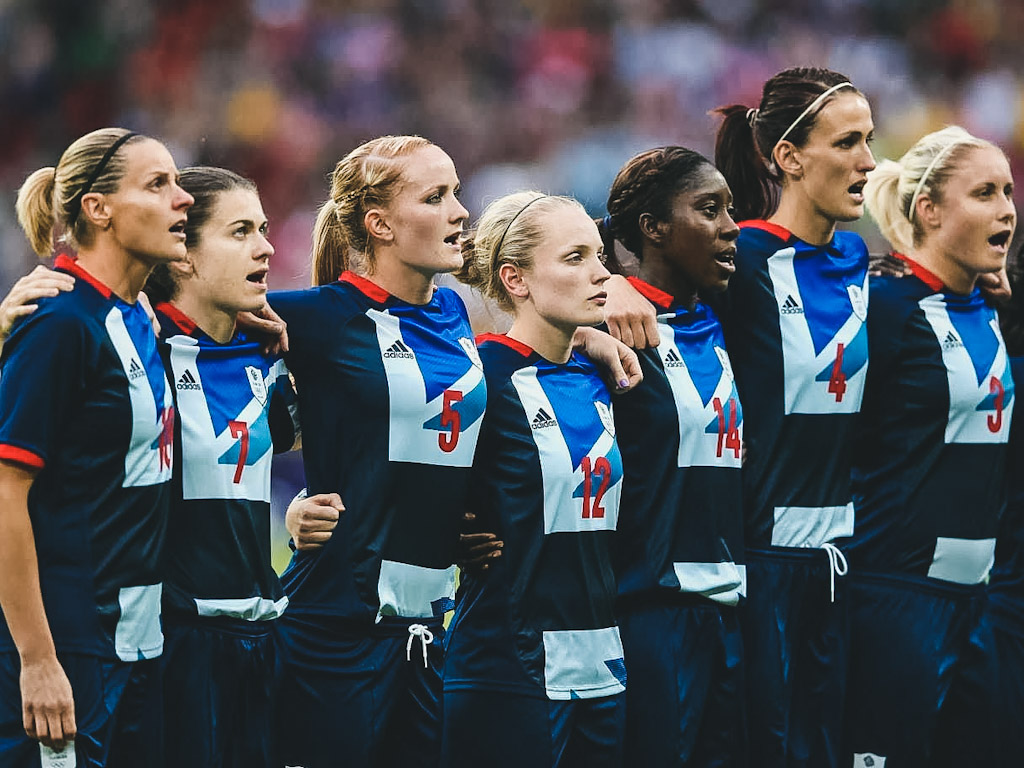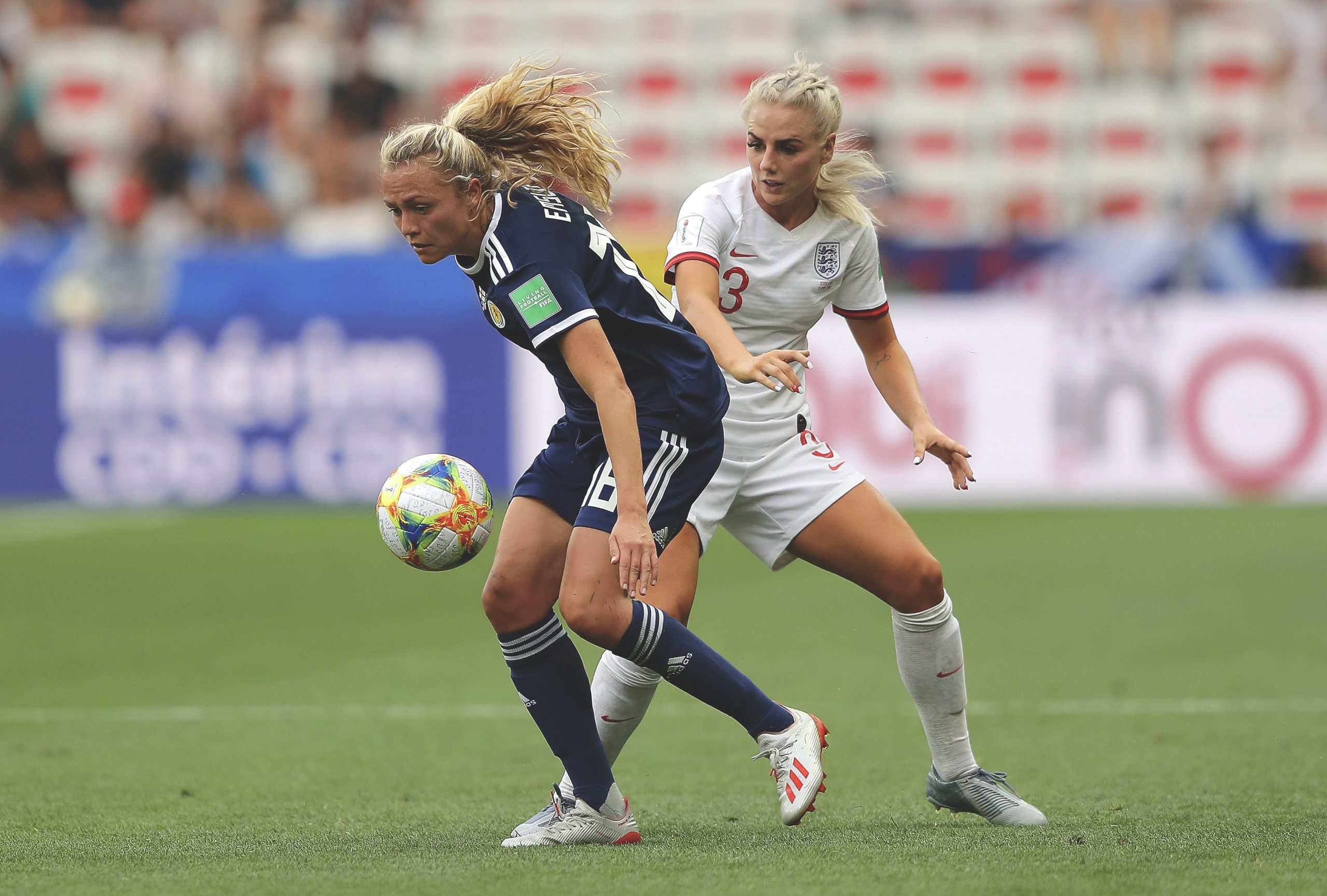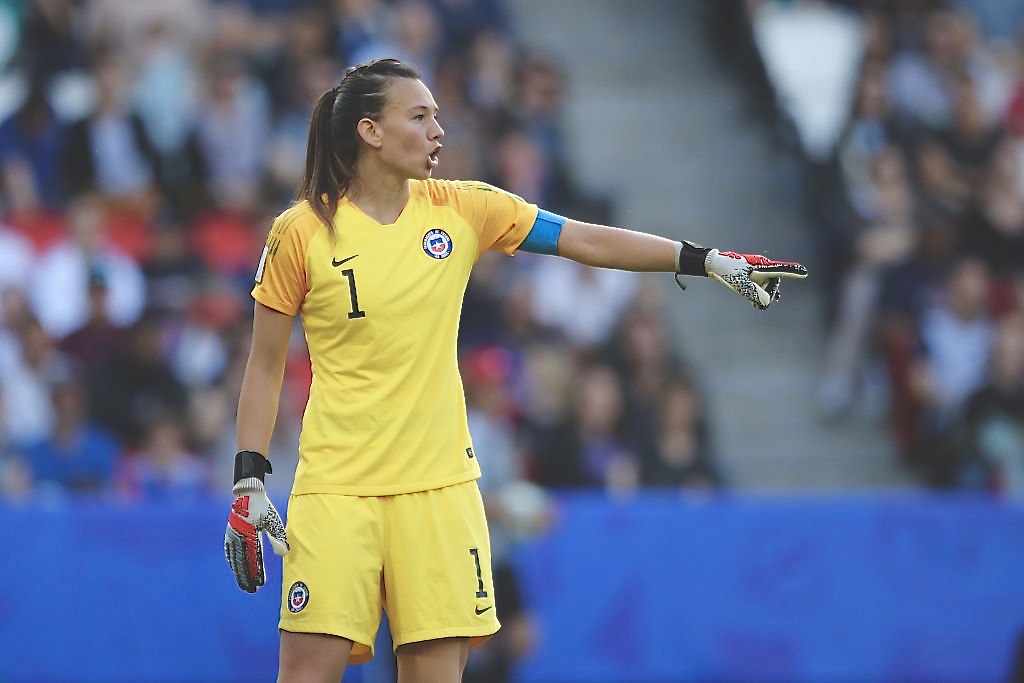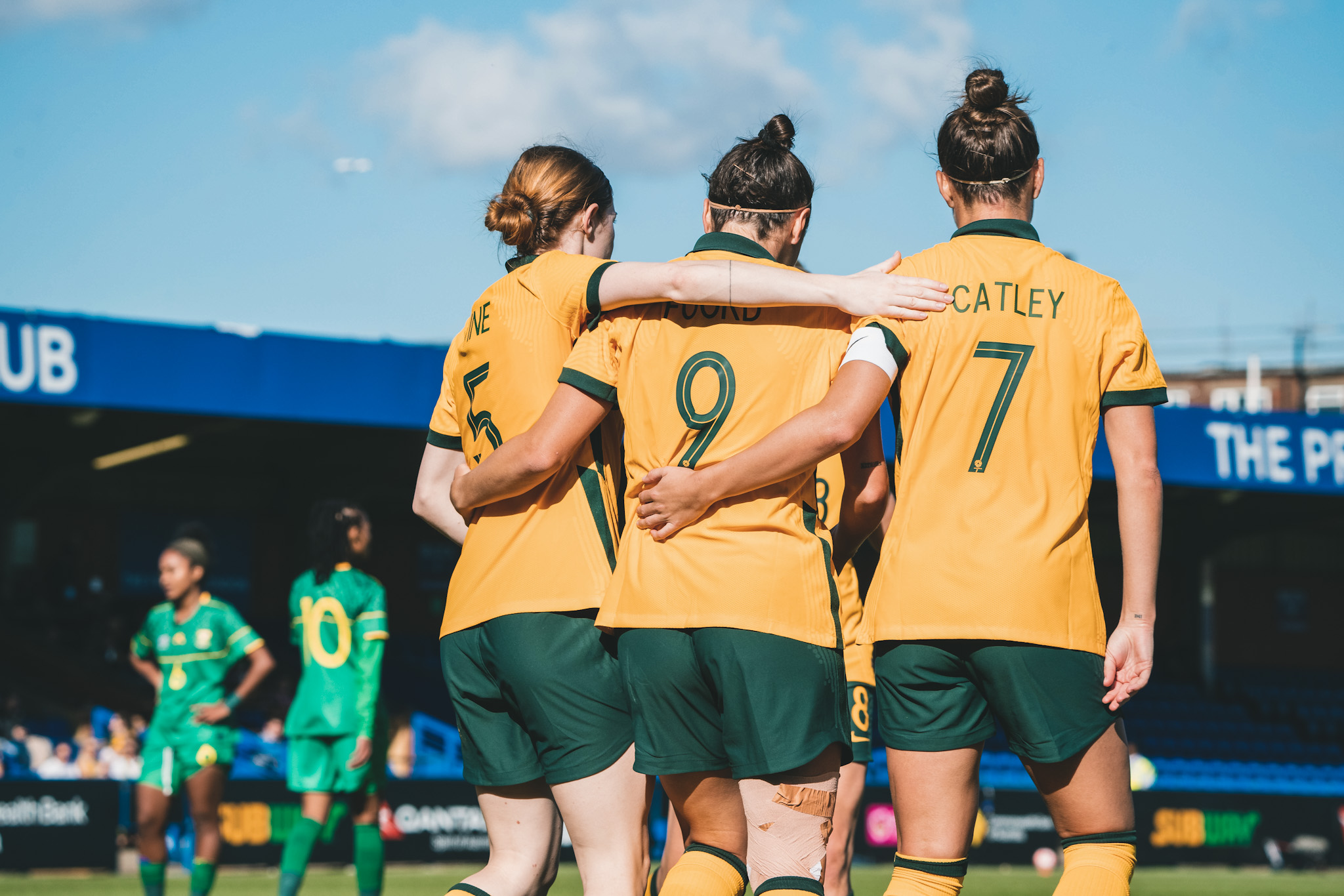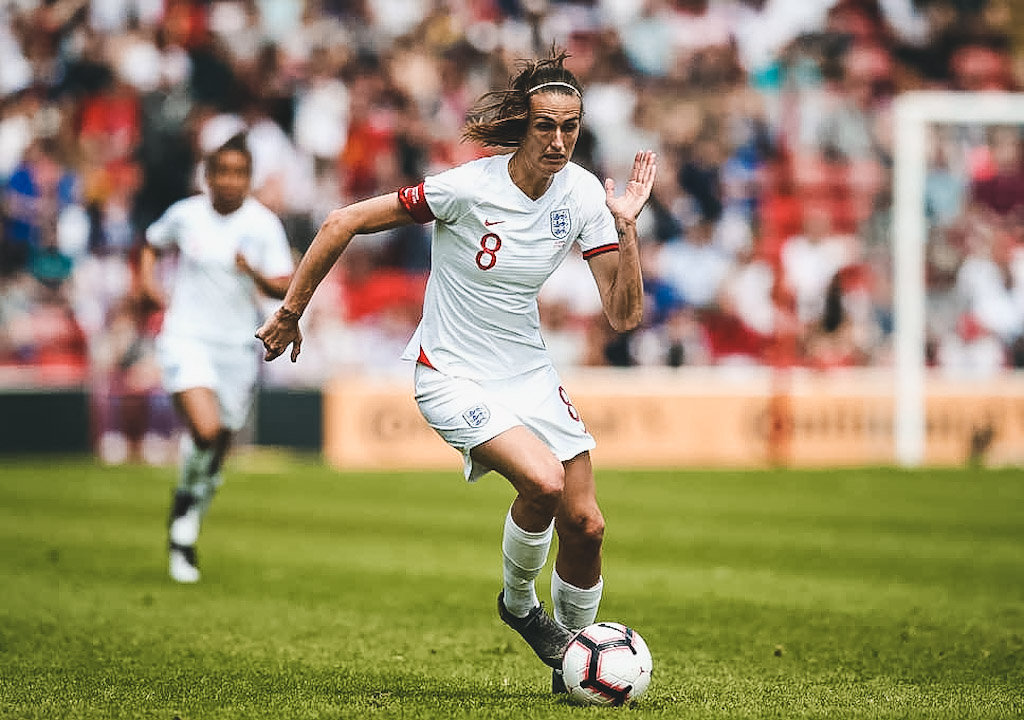In June 2011 the Football Association (FA) announced that for the first time in the organisation’s history they’d reach an agreement with the British Olympic Association (BOA) to field a Team GB women’s football team at the London 2012 Olympics. Previously the men had a team that competed in the Rome 1960 Games. In those games they beat Taiwan 3-2, drawing 1-1 with Italy and losing 4-3 to Brazil, thereby failing to advance to the medal round.
Negotiations to enter a team began back in 2005 when London was announced as the host city but this became a long and drawn-out dispute. The Scottish Football Association (SFA) refused to support their representatives taking part, although later admitted that it couldn’t force them not to. It was widely reported at the time that the SFA and the other home nations had concerns that its individual identity could be affected, despite FIFA president Sepp Blatter offering assurances that this would not be the case. This led to the team consisting of only English talent, including the appointment of Hope Powell to manage the side.
Team GB Chef de Mission, Andy Hunt said: “When Hope leads the Team GB women’s football team out for their first match at the London 2012 Olympic Games, she will be making history. Team GB has never before been represented in the Olympic women’s football competition and we are delighted that she will have the opportunity to do so on home soil in front of our passionate fans.”
The squad was selected using a similar method to how the current squad was selected, a ‘long list’ of potential players was initially identified. Those players were approached to confirm their interest and availability to compete for Team GB, if selected, following discussions with their respective professional clubs and associations.
Consistent with requirements set out in the Olympic Charter, the selection criteria will be entirely non-discriminatory, as players from England, Scotland, Wales, Northern Ireland and other territories which fall under the BOA’s remit as a National Olympic Committee, who meet the approved competitive standard will be eligible for consideration and selection.
As the competition drew closer, the long list was reduced to a shortlist of players, and an announcement of the squad was made in the summer of 2012.
The final squad was, Eniola Aluko (Birmingham City), Anita Asante (Göteborg FC), Karen Bardsley (Linköping), Sophie Bradley (Lincoln Ladies), Rachel Brown (Everton), Karen Carney (Birmingham City), Ifeoma Dieke (Vittsjö GIK), Stephanie Houghton (Arsenal), Kim Little (Arsenal), Claire Rafferty (Chelsea), Alex Scott (Arsenal), Jill Scott (Everton), Kelly Smith (Arsenal), Casey Stoney (Lincoln Ladies), Fara Williams (Everton), Rachel Williams (Birmingham City), Ellen White (Arsenal) and Rachel Yankey (Arsenal).
The only non-English players selected in the squad were Scotland pair, Ifeoma Dieke and Kim Little. Powell said, “I didn’t feel any pressure to include players from Northern Ireland or Wales. I was tasked with picking the best squad of players and that’s what I’ve done. We had everyone looked at extensively. I took the associations out of the equation and it was just about trying to pick a squad of players that I felt would do the best job possible.”
There were also four reserves named, Jess Clarke (Lincoln Ladies), Emma Higgins (KR Reykjavík), Jane Ross (Glasgow City) and Dunia Susi (Chelsea). Susi was eventually called into the squad to cover the injured Dieke.
In the build-up to the squad being announced, Powell’s biggest headache was the fitness of Kelly Smith. The Arsenal forward was fortunately able to recover from a stress fracture that she sustained in March, three and a half months before the competition began.
The players stepped onto the pitch for the first time in a friendly against Sweden at the Riverside. The 0-0 draw was a fair result but moments of magic from White and Yankey provided signs that the team could develop into genuine medal contenders.
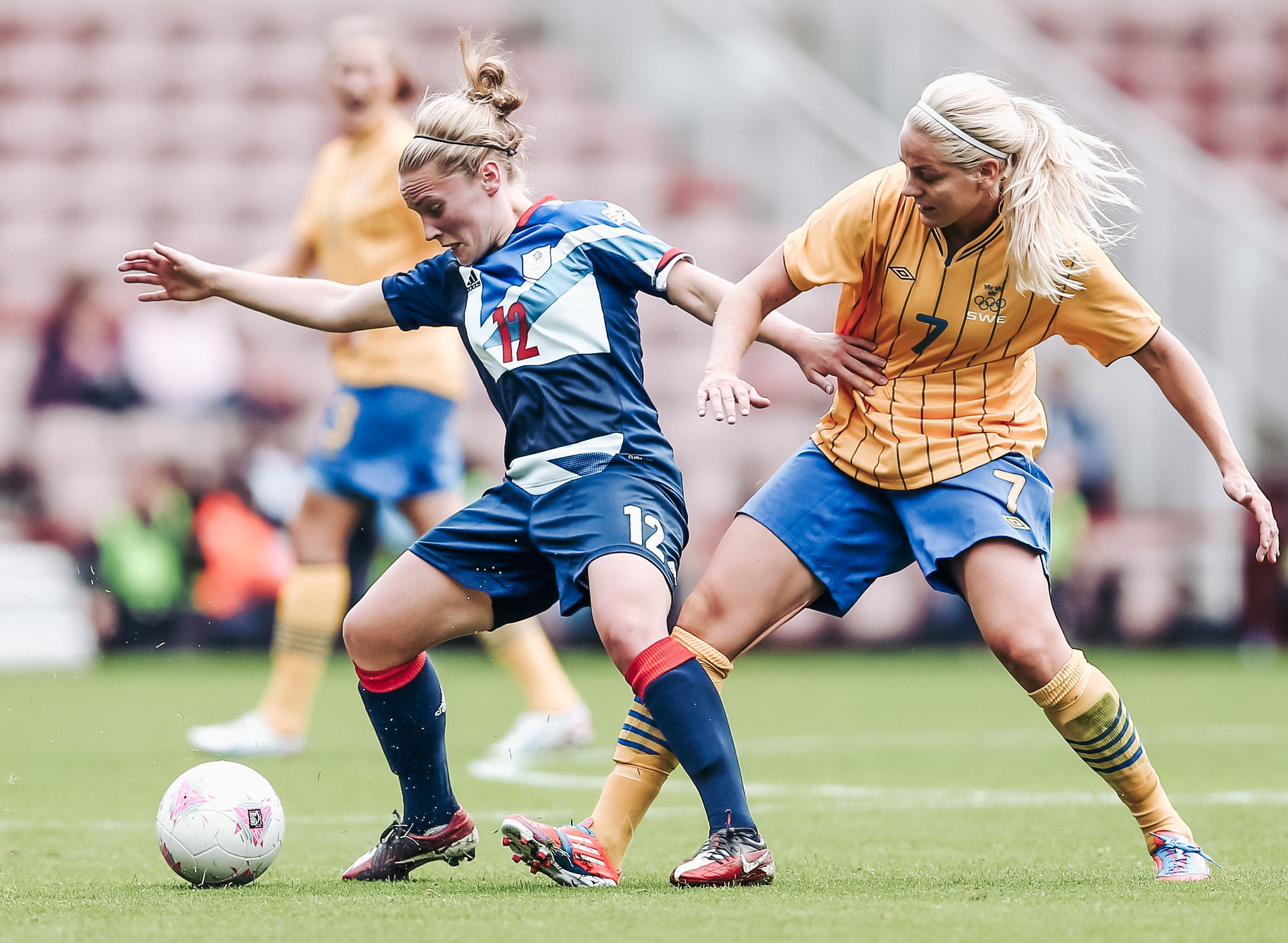
Five days later, a crowd of over 24,000 cheered on the team in their first competitive match together, a 1-0 win against New Zealand at the Millennium Stadium in Cardiff. At the time the attendance was disappointing given that the official estimate was that another ten thousand tickets had been sold. The win was much more convincing than the scoreline suggested. Steph Houghton managed to find a small gap in the Kiwi wall to powerfully place her shot passed Jenny Bindon.
After the game, Powell said, “I think she [Houghton] was in shock afterwards with that celebration. She didn’t quite know what to do. She’s the first scorer for a Great Britain women’s team and she’s created history.”
Team GB returned to Cardiff for their second game and by this point clearly Olympic-fever had captured the United Kingdom as there was an increased crowd of 31,141 to cheer on Powell’s side. A comfortable 3-0 win over Cameroon saw the team secure a place in the quarter-finals with one game to spare. Progression was never in doubt after Casey Stoney and Jill Scott put Team GB 2-0 within 23 minutes, the side were made to wait until the 82nd minute before Steph Houghton added the third, her second in two matches.
It wasn’t all cheer for Powell though, her rock at centre back, Iffy Dieke, was stretchered off in the second half after rupturing the cruciate ligaments in her knee, ending her participation in the tournament.
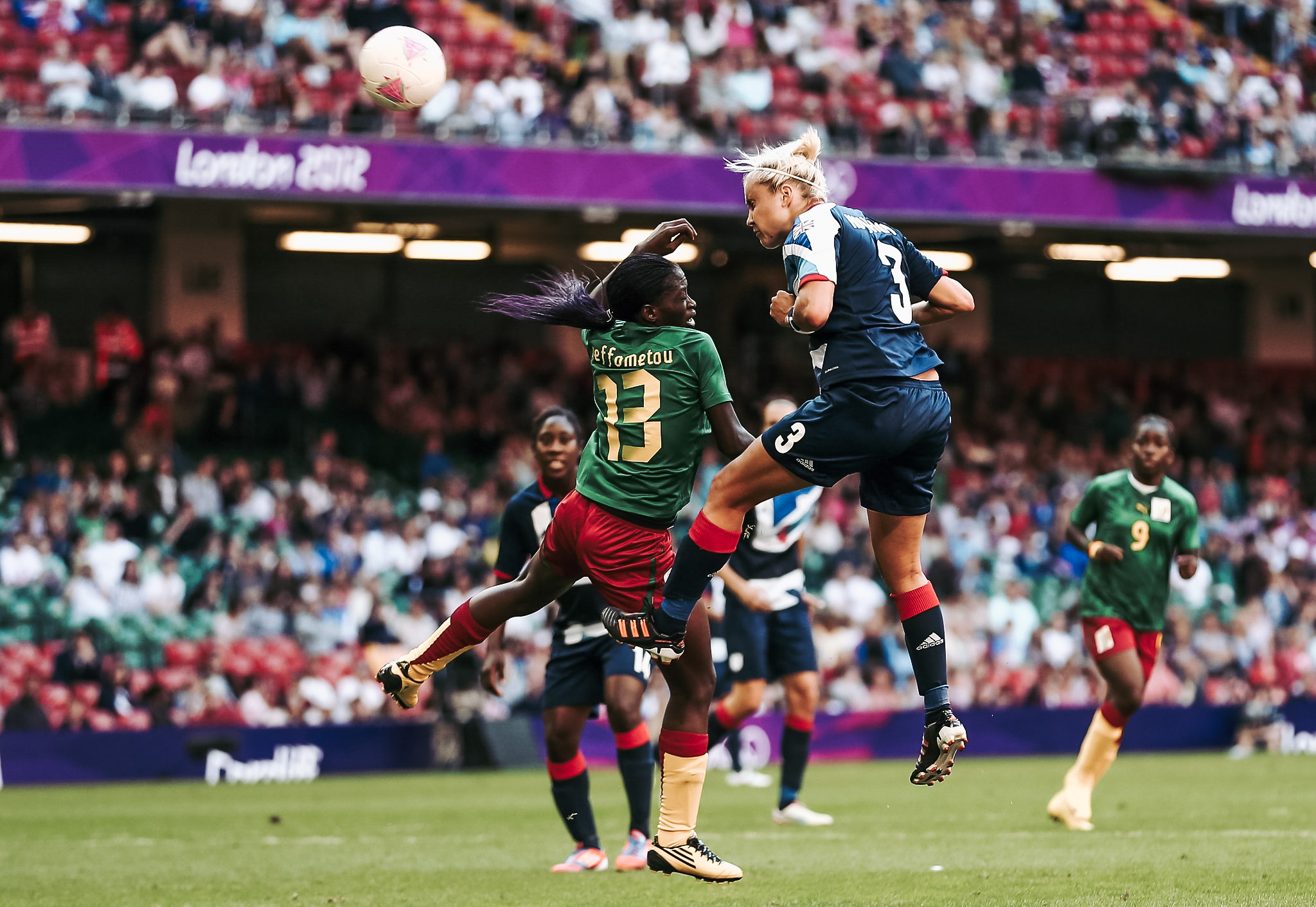
With qualification secured, Team GB went into their final group match against Brazil at Wembley without any pressure and full of confidence. A crowd of over 71,000, more than attended the previous two games combined, saw Team GB make it three wins out of three after Houghton scored in another 1-0 victory. It could have even more but Kelly Smith’s penalty was saved by Andreia.
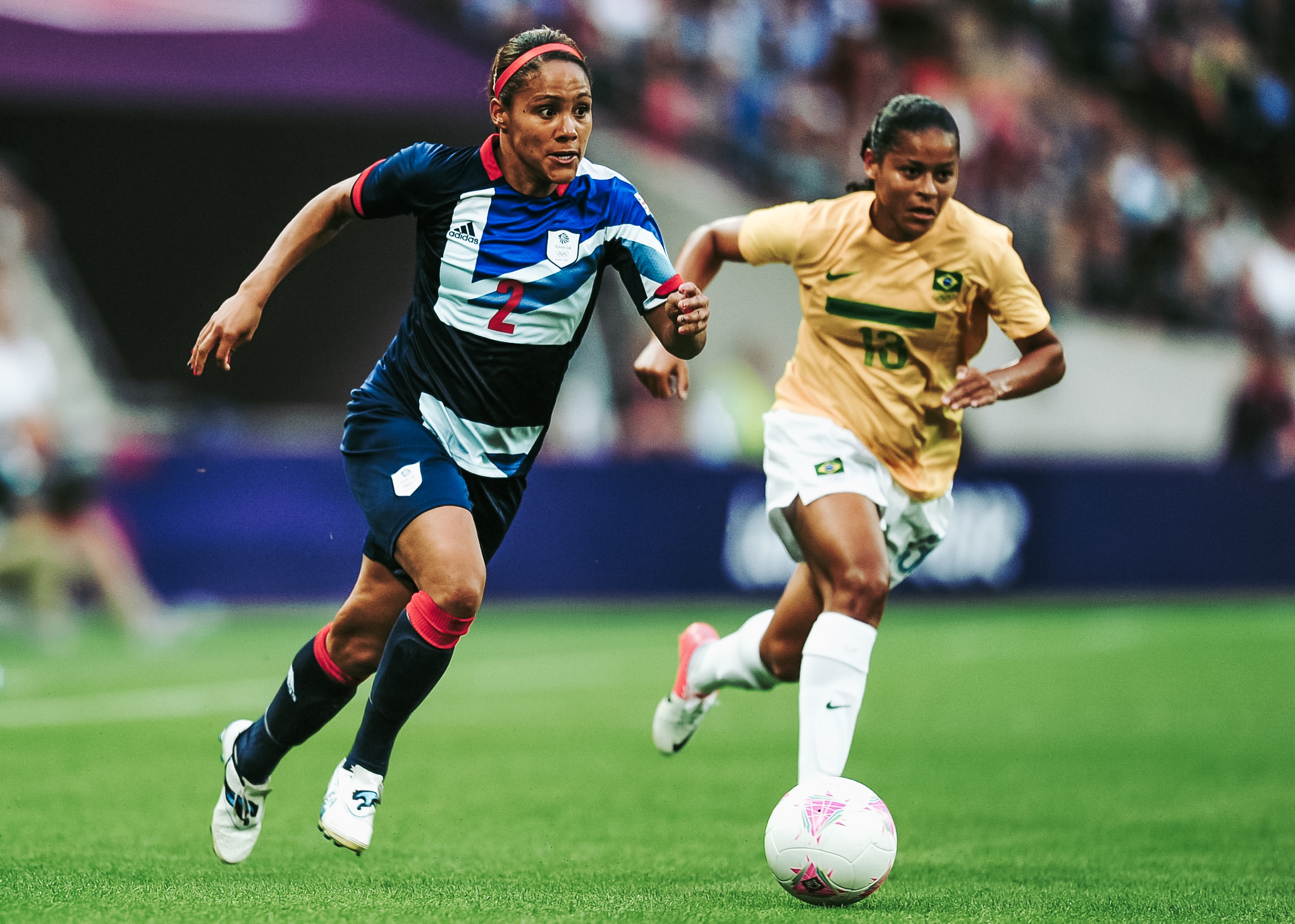
The City of Coventry Stadium (now Ricoh Arena) was the venue for the quarter-final against Canada. Team GB found themselves two goals down within twenty-six minutes thanks to goals from Jonelle Filigno and Christine Sinclair. Powell’s side had no answer to the strength and work rate of the Canadians. After the game Powell said, “There’s nothing better than tournament experience, you grow up and learn so quickly. It is disappointing to go out, but the journey has been incredible. The girls can be proud to be Olympians and history makers. No one can take that away.”
The result was a disappointment, however, given the circumstances, everyone involved can be immensely proud of how the team performed. I am so pleased that Hege Riise has included players that were involved in London for her Tokyo squad as their experience of this unique event will be invaluable. Team GB has been drawn into Group E and begin their competition against Chile on July 21st. Followed by the host’s Japan on July 24th before taking on Canada, the team that eliminated them in London, on July 27th. Keep an eye out on Since 71 as we’ve got some extensive coverage of the games planned.





